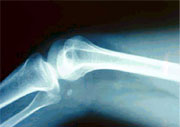Slip and Fall
 |
“Slip and fall” is a term for personal injury cases which arise when injury is caused during a slip and fall as a result of a dangerous or hazardous condition on someone else’s property. Slip and fall accidents are the most common type of “premises liability” cases, which center on the question of a property owner’s duty to care for the property. Slip and fall cases are governed under negligence law. To win a premises liability claim, RobertsMiceli LLP has to prove either that the defendant created the hazard that led to the accident or that the defendant knew or should have known about the danger and should have had it removed or repaired. This can often be difficult to prove, since establishing when a given hazard first appeared can be challenging. That is why RobertsMiceli LLP aggressively represents victims of slip and fall accidents to help ensure that they receive full compensation for their injuries.
Related Content
Related Links
Related Articles
- Woman Files Lawsuit for Slip and Fall against Bar – Feb 19 2015
- Settlement Reached in Lawsuit Over Wild Dog Mauling at Pittsburgh Zoo – Jun 02 2014
- Woman Mauled by Chimp Seeks Permission to Sue State of Connecticut – Mar 21 2014
- NJ Woman Sues Dunkin’ Donuts Over Hot Cider Spill – Feb 25 2014
- Outback Steakhouse Sued Over Bits of Broken Plate in Mashed Potatoes – Feb 19 2014
- Six Flags Blames Coaster Manufacturer for Wrongful Death – Feb 18 2014
- Parents of Child Who Swallowed Souvenir Penny Sue Bronx Zoo – Feb 02 2014
- Court: Man Injured by Skydiver Cannot Sue Host of Charity Event – Jan 30 2014
- Lawsuit Filed Over Deadly Fire Escape Collapse in Philly – Jan 27 2014
- Auburn University Sued Over Student’s Murder – Jan 23 2014
- Sister of Woman Killed in Navy Yard Shooting Plans to Sue the U.S. – Nov 09 2013
- Lawsuit: Moldy University Housing Sends Girl, 1, to Hospital – Nov 06 2013
- Virginia Supreme Court: Virginia Tech Not Negligent in 2007 Shooting – Oct 31 2013
- Macy’s Sued Over Escalator Injury – Oct 09 2013
- Family of Woman Killed on Roller Coaster Sues Six Flags – Sep 11 2013
- Parents Sue After Son Killed by Falling Sign – Jun 06 2013
- Judge: Lawsuits Against Aurora CO Theater Can Move Forward – Apr 18 2013
- Body in Hotel Water Tank Prompts Lawsuit – Mar 01 2013
- Passengers Sue Over Disabled Cruise Ship – Feb 21 2013
- Judge Limits Aurora Theater Shooting Lawsuits – Jan 26 2013
- First Lawsuit Filed Over NYC Ferry Crash – Jan 22 2013
- Moviegoer Sues Texas Theater Over Shooting – Jan 17 2013
- $3 Million Settlement in Frat Party Death Suit – Dec 04 2012
- 55 Injured in Florida Apartment Roof Collapse – Oct 21 2012
- Vail Resorts Sued Over Avalanche Death – Oct 15 2012
Related Books

American College of Emergency Physicians First Aid Manual

FastAct Pocket First Aid Guide


Slip-and-Fall Prevention Made Easy: A Comprehensive Guide to Preventing Acc…

The American Red Cross First Aid and Safety Handbook

In all matters involving personal injury it is essential that measures be taken promptly to preserve evidence, investigate the accident in question, and file a lawsuit prior to the deadline imposed by the Statute of Limitations. If you or a loved one is a victim of personal injuries, call RobertsMiceli LLP now at or submit a simple Case Review Form. The initial consultation is free of charge, and if we agree to accept your case, we will work on a Contingent Fee basis, which means we get paid for our services only if there is a monetary award or recovery of funds. Don’t delay! You may have a valid claim and be entitled to compensation for your injuries, but a lawsuit must be filed before the statute of limitations expires.
The above is not legal advice. That can only come from a qualified attorney who is familiar with all the facts and circumstances of a particular, specific case and the relevant law. See Terms of Use.
